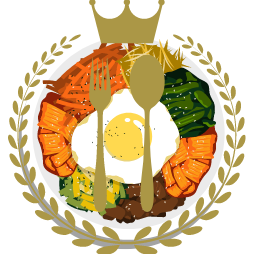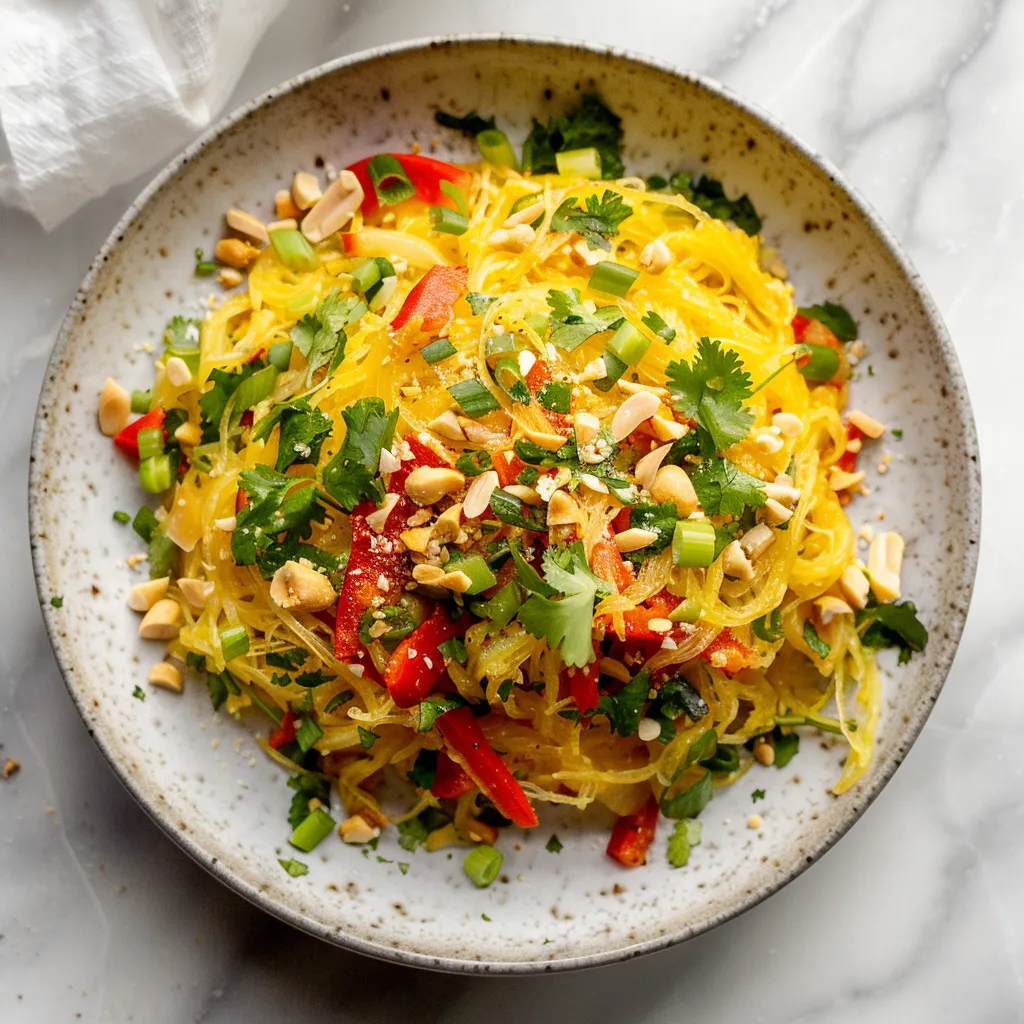Hello! I Am Excited to Show you one of my favorite dishes, spaghetti squash pad Thai. This lighter and healthier take on the traditional substitutes spaghetti squash for noodles. No matter how often you cook or how new you are to it, this recipe is always delicious and easy to modify. Cook with me a delicious and healthful dinner!
Why is this recipe good?
The robust flavors of Thai cuisine are combined with the health advantages of a meal high in vegetables in Pad Thai with spaghetti squash. Because spaghetti squash has a higher vitamin and mineral content than noodles, it’s a terrific option for anyone trying to reduce their carb intake without sacrificing flavor. Learn why spaghetti squash is healthful and how to incorporate it into various recipes.
The key to achieving the perfect balance of flavors in this dish lies in the combination of:
Tamarind paste or lime juice for that tangy kick
Fish sauce or soy sauce for umami depth
A hint of sweetness from palm sugar or honey
The crunch and freshness of bean sprouts and green onions
Check out our Black Spaghetti Squid Ink Pasta for those interested in exploring other creative spaghetti recipes.
Overview of Ingredients for Spaghetti Squash Recipe
For this spaghetti squash Pad Thai, you’ll need a mix of fresh and ready-to-use ingredients that work well together to make the dish taste real. You will need these things:
Chicken or tofu: Protein can be customized based on dietary preferences.
Peanut butter: For creaminess and depth in the sauce.
Vegetables include bell peppers, bean sprouts, and green onions for added texture and nutrition.
Herbs and spices: Including cilantro and crushed peanuts for garnish.
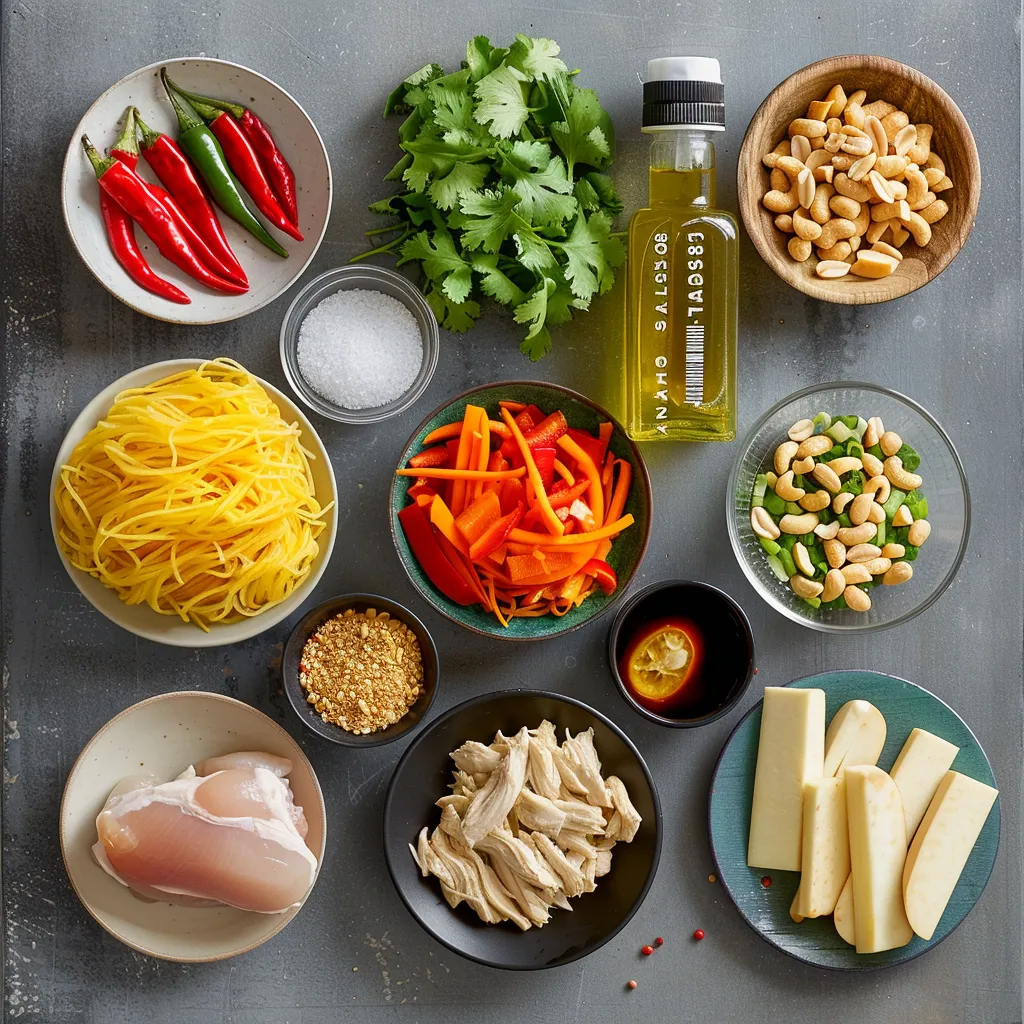
If you’re looking for more chicken-based recipes, there are plenty of options out there. You might want to try making chicken stir-fry, chicken fajitas, or even chicken pot pie. There are also many different ways to prepare chicken, such as grilling, roasting, or baking. Whatever your preference, you’re sure to find a delicious recipe that showcases this versatile protein.
Chef’sChef’s Tips for Perfect Low-Carb Pad Thai
To make the best Pad Thai with spaghetti squash, you need to know a few tricks that will give you the best flavor and texture:
Choosing the Squash: Look for medium-sized spaghetti squash that feels heavy and has a firm, blemish-free exterior.
Cooking the Squash: Roast or microwave the squash, but aim to keep it al dente to avoid mushy noodles.
Sauce Consistency: Balance the sauce ingredients well; it should be a harmonious blend of sweet, sour, salty, and spicy.
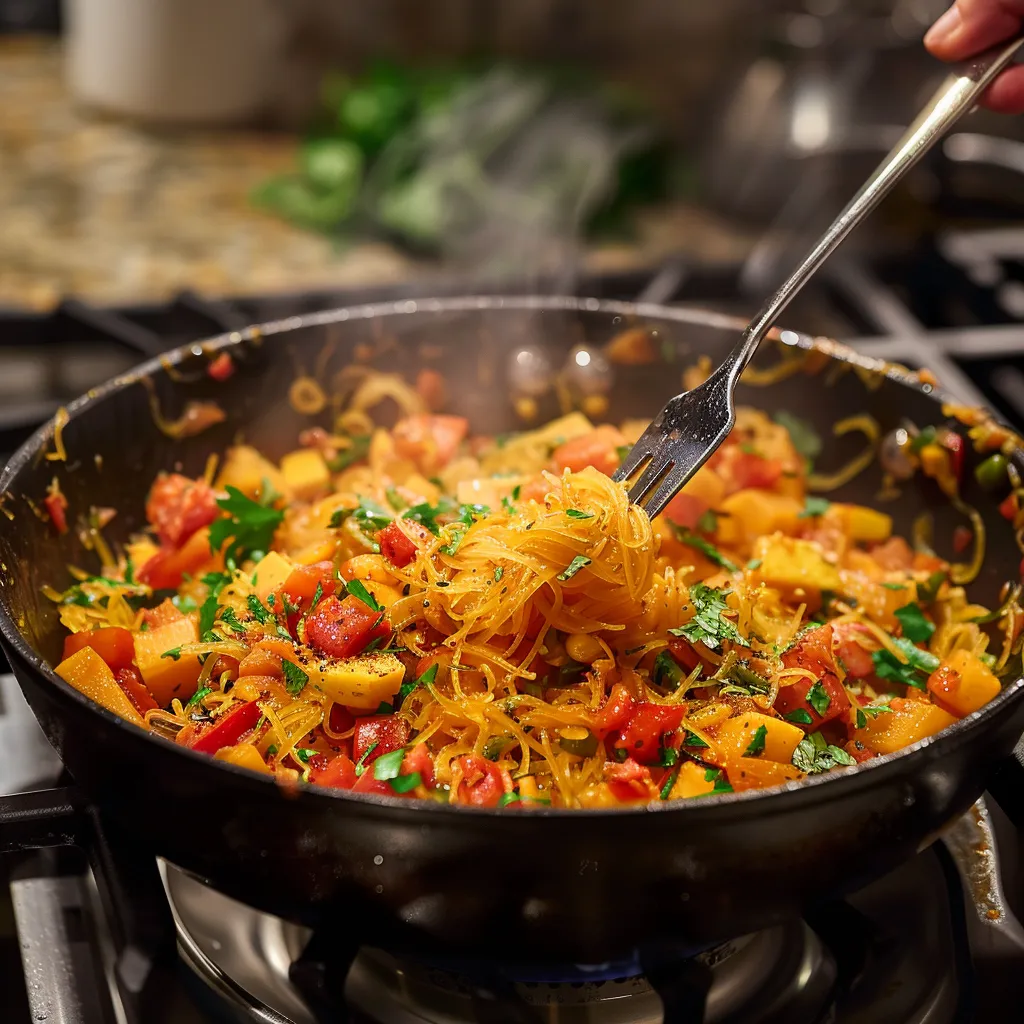
Customize Your Dish
Spaghetti squash Pad Thai can be used in a lot of different ways. Here are some ways you can change your dish to suit different diets and tastes:
You can replace the chicken with shrimp, tofu, or crumbled tempeh to keep it plant-based.
Changes to the vegetables: For an extra veggie boost, add or switch out the broccoli, snap peas, or mushrooms.
Heat level: You can adjust the heat by adding or removing red chili flakes or fresh Thai chilies.
What goes best with spaghetti squash pad Thai
This dish pairs wonderfully with other Thai-inspired sides or simple greens. Some serving suggestions include:
A light cucumber salad dressed with vinegar and sugar
Steamed jasmine rice or cauliflower rice for those seeking extra heartiness without the carbs
A crisp, cold Thai beer or a glass of Riesling to complement the spicy-sweet flavors
Healthy Pad Thai
Spaghetti squash is a low-carb alternative to noodles and is packed with essential nutrients such as beta-carotene, potassium, and fiber. Integrating it into your diet can help:
Improve digestive health due to its high fiber content
Support eye health with its vitamin A
Aid in weight management by providing a feeling of fullness with fewer calories
Enjoy your delicious and nutritious Cilantro Lime Pasta Salad! If you’re looking for more chicken-based recipes, plenty of options exist.
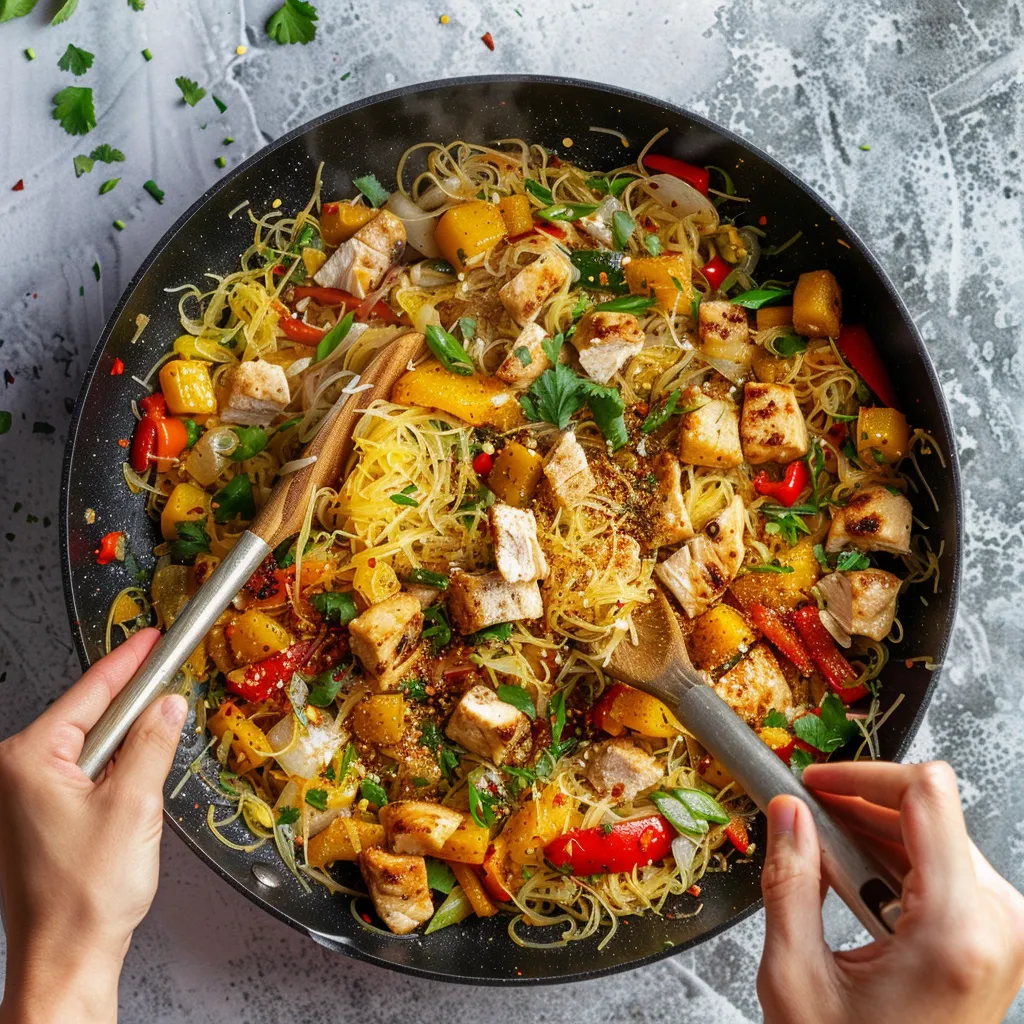
FAQs
What does spaghetti squash taste like?
A touch nutty, spaghetti squash tastes mild and nearly neutral. It absorbs flavors without becoming overly strong, which makes it an excellent way to disperse sauces and seasonings.
How do you keep spaghetti squash from getting soggy?
To prevent spaghetti squash from getting soggy, avoid overcooking it. Cook the flesh just until it is slightly firm but can be forked through. Roasting cut-side up helps maintain a firmer texture by evaporating moisture.
Why is it called spaghetti squash?
The unusual texture is why it is called spaghetti squash. When cooked, the flesh separates into spaghetti-like strands that can be scraped out with a fork.
Are spaghetti squash noodles crunchy?
Though they can be somewhat crisp if cooked long enough, spaghetti squash noodles are not precisely crunchy. When cooked correctly, they are dentier and have a slightly firm texture.
Is spaghetti squash healthier than noodles?
Given its calorie and carbohydrate content, spaghetti squash is, in fact, healthier than regular pasta noodles. It’s a better substitute because it has more vitamins, A and C, and fewer calories and carbohydrates.
Is spaghetti squash healthy for you?
Absolutely! Spaghetti squash is a good source of fiber, vitamin C, manganese, and vitamin B6, and it is also low in calories. Its nutritional makeup helps the immune system, digestion, and general health.
Healthy Spaghetti Squash Pad Thai Recipe – Light & Flavorful
You can create a scrumptious and healthy Spaghetti Squash Pad Thai low in carbs. This nutritious twist on a classic dish is perfect for anyone following a specific diet or looking for a healthier option.
- Prep Time: 15 minutes
- Cook Time: 45 minutes
- Total Time: 1 hour
- Yield: 4
- Category: Main Course
- Method: Baking, Sautéing
- Cuisine: Thai
- Diet: Vegetarian
Ingredients
- 1 medium spaghetti squash (about 2 pounds)
- 2 tablespoons olive oil
- 1 large chicken breast, cut into bite-sized pieces (optional for vegetarian: replace with tofu)
- Salt and pepper to taste
- 1 red bell pepper, thinly sliced
- 2 carrots, julienned
- 2 cloves garlic, minced
- 1/4 cup chopped green onions
- 1/4 cup crushed peanuts
- 1/4 cup fresh cilantro, chopped
- 2 tablespoons soy sauce (or tamari for gluten-free option)
- 2 tablespoons fish sauce (omit for vegetarian and increase soy sauce)
- 2 tablespoons lime juice
- 1 tablespoon brown sugar or honey
- 1 teaspoon chili flakes or sriracha sauce (adjust to taste)
- Lime wedges for serving
Instructions
- Prepare the Squash:
- Preheat oven to 400°F (200°C).
- Slice spaghetti squash in half lengthwise and scoop out the seeds. Drizzle with olive oil and season with salt and pepper.
- Place cut-side down on a baking sheet and roast for 30-40 minutes until tender.
- Cook the Protein:
- While the squash is cooking, heat a tablespoon of olive oil in a large skillet over medium heat.
- Add chicken pieces, season with salt and pepper, and cook until golden and cooked through. Remove from the skillet and set aside.
- (For vegetarian option, cook tofu until crispy.)
- Sauté Vegetables:
- In the same skillet, add a bit more oil if needed, and sauté bell pepper and carrots until just tender, about 5 minutes. Add garlic and green onions, cooking for another minute until fragrant.
- Combine Ingredients:
- Use a fork to scrape the strands of spaghetti squash into the skillet with the vegetables.
- Add cooked chicken or tofu back to the skillet along with soy sauce, fish sauce, lime juice, brown sugar, and chili flakes. Toss everything together and heat through.
- Serve:
- Divide the mixture among plates. Garnish with crushed peanuts, fresh cilantro, and lime wedges.
Notes
- For Crisper Squash: To avoid soggy squash, do not overcook it. Check it after 30 minutes.
- Flavor Adjustment: Taste and adjust the seasoning if necessary, adding more soy sauce for saltiness or lime juice for acidity.
- Add Texture: For extra crunch, top with bean sprouts along with the peanuts and cilantro.
Keywords: Spaghetti Squash Pad Thai, Spaghetti Squash Thai Noodles. Low-Carb Pad Thai. Squash Noodle Pad Thai
